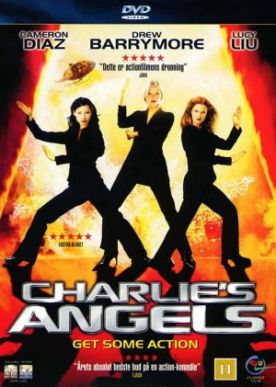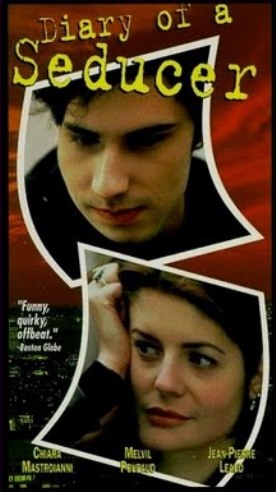Summer in Berlin (Sommer vorm Balkon)
“Posters were being put up in cities and towns across Germany yesterday,” reported The Times of London this week, “urging women to make use of the Baby-Klappe, with the slogan ‘Before babies land in the rubbish bin . . .’” The Baby-Klappe is a hatch installed in German hospitals to allow women to deposit unwanted babies anonymously. It is hoped that it will halt a spate of at least 23 child murders so far this year. Typical is Susanne H. from Baiersdorf in Bavaria who strangled her newborn baby daughter and put the body in her freezer because, she said, her boyfriend “threatened to throw me out if I concealed another pregnancy from him.” German fertility rates, like those across Europe, suggest that there is also a larger, cultural sense in which children are not wanted there.
Fortuitously, along comes Andreas Dresen’s “Summer in Berlin” (“Sommer vorm Balkon”) to give us some insight into the state of the sexual culture where people seem to have lost the will to reproduce. Not, I hasten to add, that that is the film’s purpose. It’s really a female buddy picture before it is anything else, in which the friendship between Nike (Nadja Uhl) and Katrin (Inka Friedrich) is threatened when they compete for the attentions of Ronald (Andreas Schmidt). But the overwhelming sense of this movie is of hopelessness and limited options. Katrin is nearing 40, the divorced mother of 12-year-old Max (Vincent Redetzki), and she can’t find a job. The film opens with a sadly comic look at the fierce competition and criticism she faces at the interview for even such lowly employment as a department store window-dresser. Her real passion is painting, but she can’t sell any of that work either.
Nike has a poorly-paid job as a home-help for old people who are too feeble or demented to feed or clothe themselves properly. Or at all. She tends to befriend her clients and give them extra attention, but she is coming under pressure from her bosses in the welfare bureaucracy for spending longer with them than the state prescribes. The shortage of decent men must be even more dire than that of decent jobs, since these two highly attractive women are reduced to jealousy, anger and spitefulness over the worthless Ronald — an utterly unprepossessing truck-driver with wives and children scattered all over Germany. You could easily suppose that one of them might be Susanne H. from Baiersdorf.
Mr Dresen, working from a script by Wolfgang Kohlhaase, approaches this grim subject matter with an unfailingly light touch. In this he is aided by a complementary subplot in which poor Max becomes the rival of his more worldly-wise friend, Rico (Maximilian Moritz), for the favors of the little flirt, Charly (Lil Oggesen). At age 12, it seems, the sexual economy is reversed. It is females rather than males who are in greater demand. Also cutting across the general tendency towards loneliness and emotional aridity is the bittersweet presence of the old folks — and their memories. Tiny, enfeebled Helene (Christel Peters) sings a love song from her youth, accompanying herself on an accordion as big as she is; ga-ga Oskar (Kurt Radeke) tries to give Nike some of his dead wife’s clothes — and, when she tries them on to show him how much too big they are for her, a tear comes to his eye.
A more ironic reminder of the days when love was not just a word — or an impossible dream — is the dreadful racket of unfailingly bright, cheery and empty-headed Europop which dominates the sound-track. It perfectly sums up the cheapness and nastiness to which the lives chronicled here have descended. Yet the film remains curiously detached from the melancholy reality in which it traffics, as if it was somehow God or fate which had determined that this was how the world must be and not a series of choices made by the generation which succeeded that of Helene and Oskar — and which invented Europop, among other unfortunate things.
Visible from Nike’s balcony, from which the film takes its German title, is a corner drug-store. Nike and Katrin drink wine on the balcony and giggle and make prank phone-calls to the kindly and obviously decent pharmacist (Veit Schubert), who takes a shy interest in Katrin and Max. Never does it occur to either desperate, lonely woman to see a romantic possibility in him. Like the film itself, that is, they seem to acquiesce in the meanness and sterility of their sexual, moral and emotional environment. Nike says she can’t even imagine being with someone forever. She (or Katrin) has read that “the brain produces a sexual transmitter [and] after a while it’s gone.” Well, in the view of the film too, “That’s life.” In the end, friendship may survive but love and romance remain remote and perhaps rather frightening curiosities — outmoded and too big to fit its heroines, like Oskar’s wife’s clothes. It is all very sad to watch.
Discover more from James Bowman
Subscribe to get the latest posts to your email.







